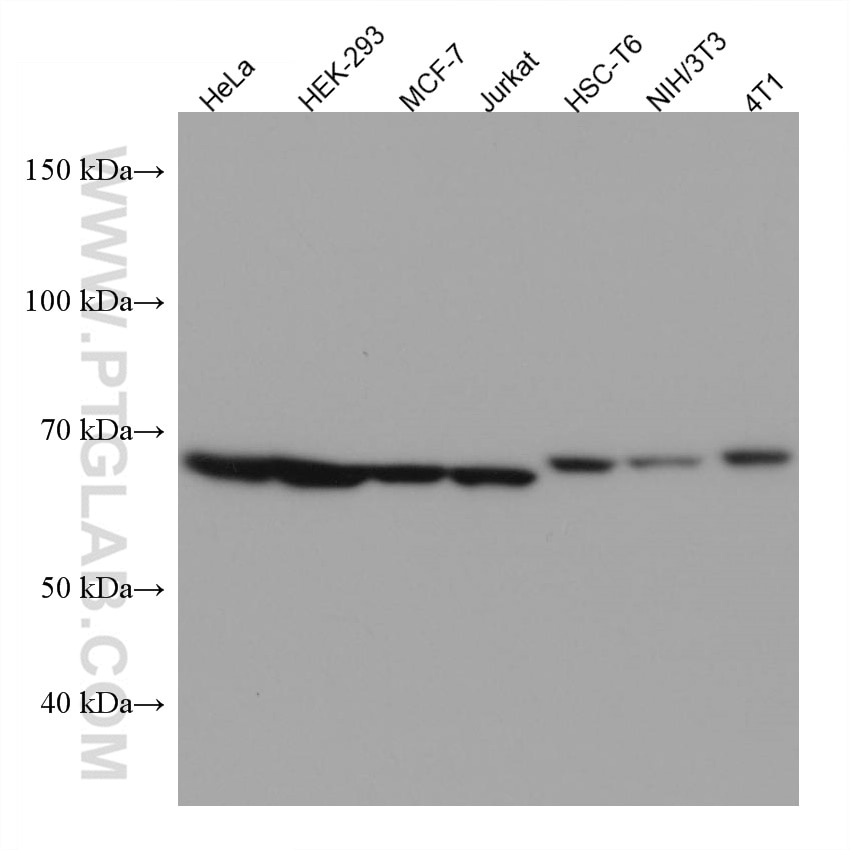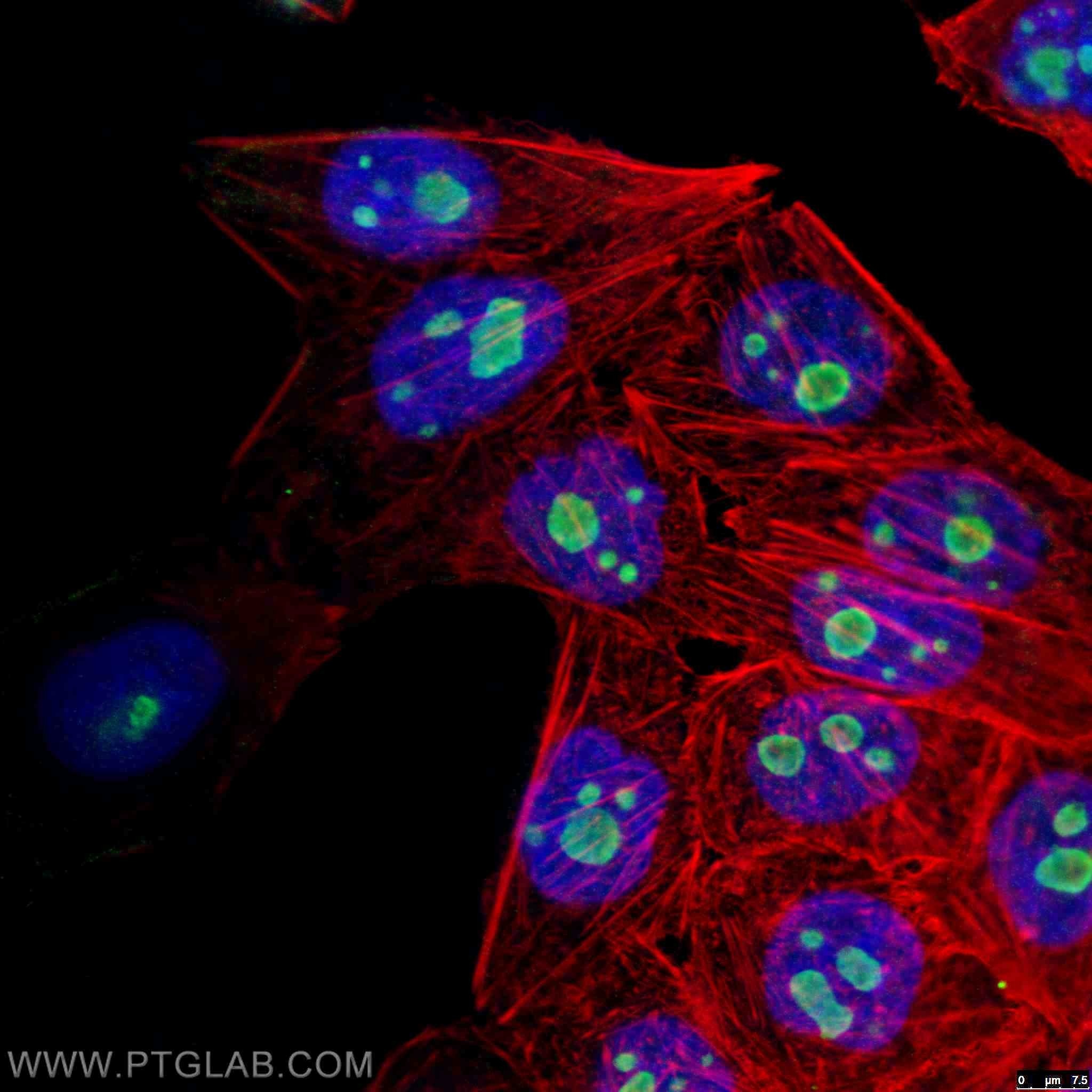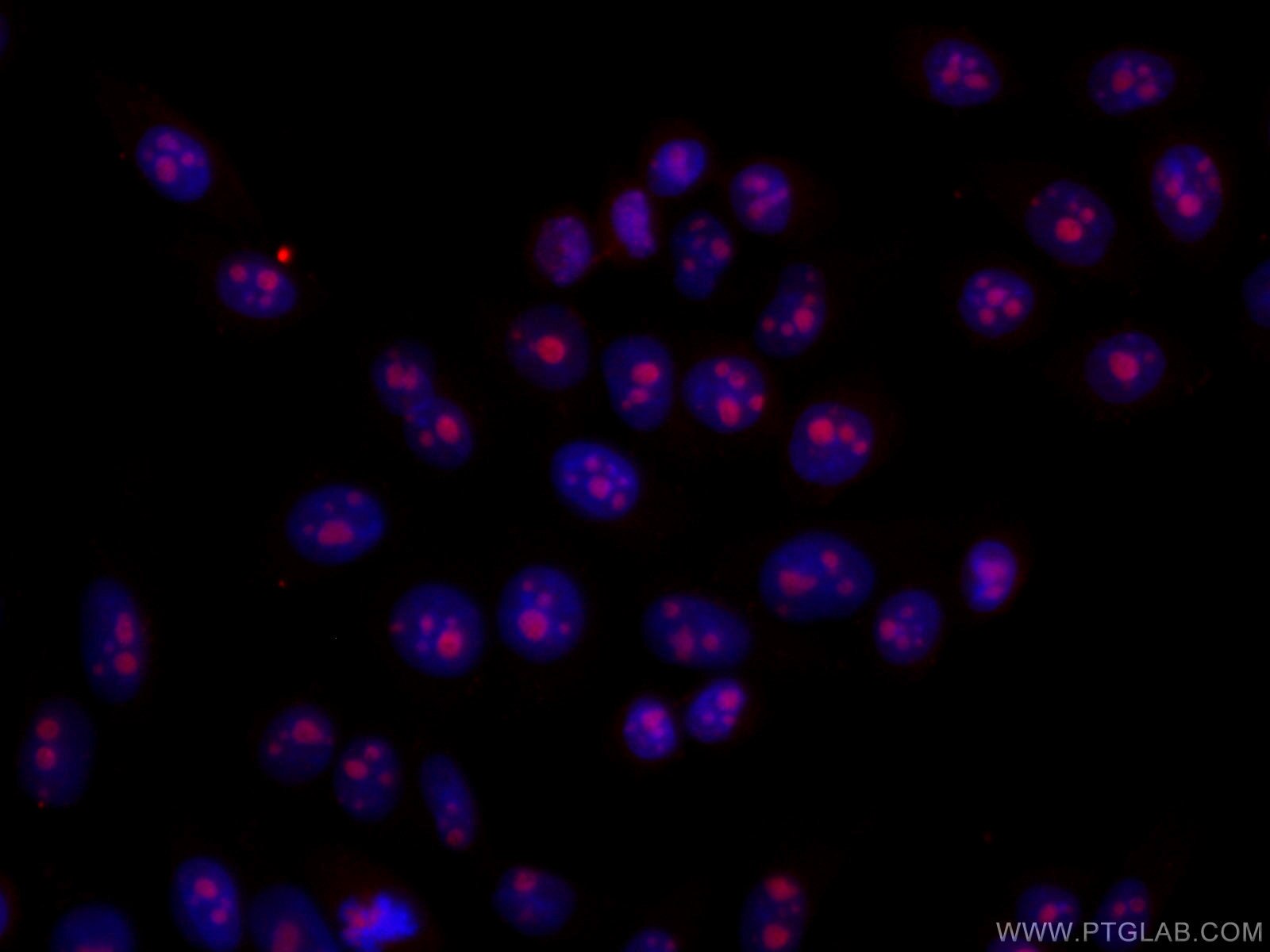Tested Applications
| Positive WB detected in | HeLa cells, HEK-293 cells, MCF-7 cells, Jurkat cells, HSC-T6 cells, NIH/3T3 cells, 4T1 cells |
| Positive IF/ICC detected in | HeLa cells |
Recommended dilution
| Application | Dilution |
|---|---|
| Western Blot (WB) | WB : 1:5000-1:20000 |
| Immunofluorescence (IF)/ICC | IF/ICC : 1:50-1:500 |
| It is recommended that this reagent should be titrated in each testing system to obtain optimal results. | |
| Sample-dependent, Check data in validation data gallery. | |
Published Applications
| WB | See 2 publications below |
| IF | See 1 publications below |
Product Information
67169-1-Ig targets GNL3 in WB, IF/ICC, ELISA applications and shows reactivity with Human, mouse, rat samples.
| Tested Reactivity | Human, mouse, rat |
| Cited Reactivity | human, mouse |
| Host / Isotype | Mouse / IgG2a |
| Class | Monoclonal |
| Type | Antibody |
| Immunogen |
CatNo: Ag7056 Product name: Recombinant human GNL3 protein Source: e coli.-derived, PET28a Tag: 6*His Domain: 201-549 aa of BC001024 Sequence: TVVFRASTKPKDKGKITKRVKAKKNAAPFRSEVCFGKEGLWKLLGGFQETCSKAIRVGVIGFPNVGKSSIINSLKQEQMCNVGVSMGLTRSMQVVPLDKQITIIDSPSFIVSPLNSSSALALRSPASIEVVKPMEAASAILSQADARQVVLKYTVPGYRNSLEFFTMLAQRRGMHQKGGIPNVEGAAKLLWSEWTGASLAYYCHPPTSWTPPPYFNESIVVDMKSGFNLEELEKNNAQSIRAIKGPHLANSILFQSSGLTNGIIEEKDIHEELPKRKERKQEEREDDKDSDQETVDEEVDENSSGMFAAEETGEALSEETTAGEQSTRSFILDKIIEEDDAYDFSTDYV Predict reactive species |
| Full Name | guanine nucleotide binding protein-like 3 (nucleolar) |
| Calculated Molecular Weight | 62 kDa |
| Observed Molecular Weight | 62 kDa |
| GenBank Accession Number | BC001024 |
| Gene Symbol | GNL3 |
| Gene ID (NCBI) | 26354 |
| RRID | AB_2882465 |
| Conjugate | Unconjugated |
| Form | Liquid |
| Purification Method | Protein A purification |
| UNIPROT ID | Q9BVP2 |
| Storage Buffer | PBS with 0.02% sodium azide and 50% glycerol, pH 7.3. |
| Storage Conditions | Store at -20°C. Stable for one year after shipment. Aliquoting is unnecessary for -20oC storage. 20ul sizes contain 0.1% BSA. |
Protocols
| Product Specific Protocols | |
|---|---|
| IF protocol for GNL3 antibody 67169-1-Ig | Download protocol |
| WB protocol for GNL3 antibody 67169-1-Ig | Download protocol |
| Standard Protocols | |
|---|---|
| Click here to view our Standard Protocols |
Publications
| Species | Application | Title |
|---|---|---|
Int J Oral Sci Integrative single-cell and bulk transcriptomes analyses reveals heterogeneity of serine-glycine-one-carbon metabolism with distinct prognoses and therapeutic vulnerabilities in HNSCC | ||
Science A subcellular map of translational machinery composition and regulation at the single-molecule level |








